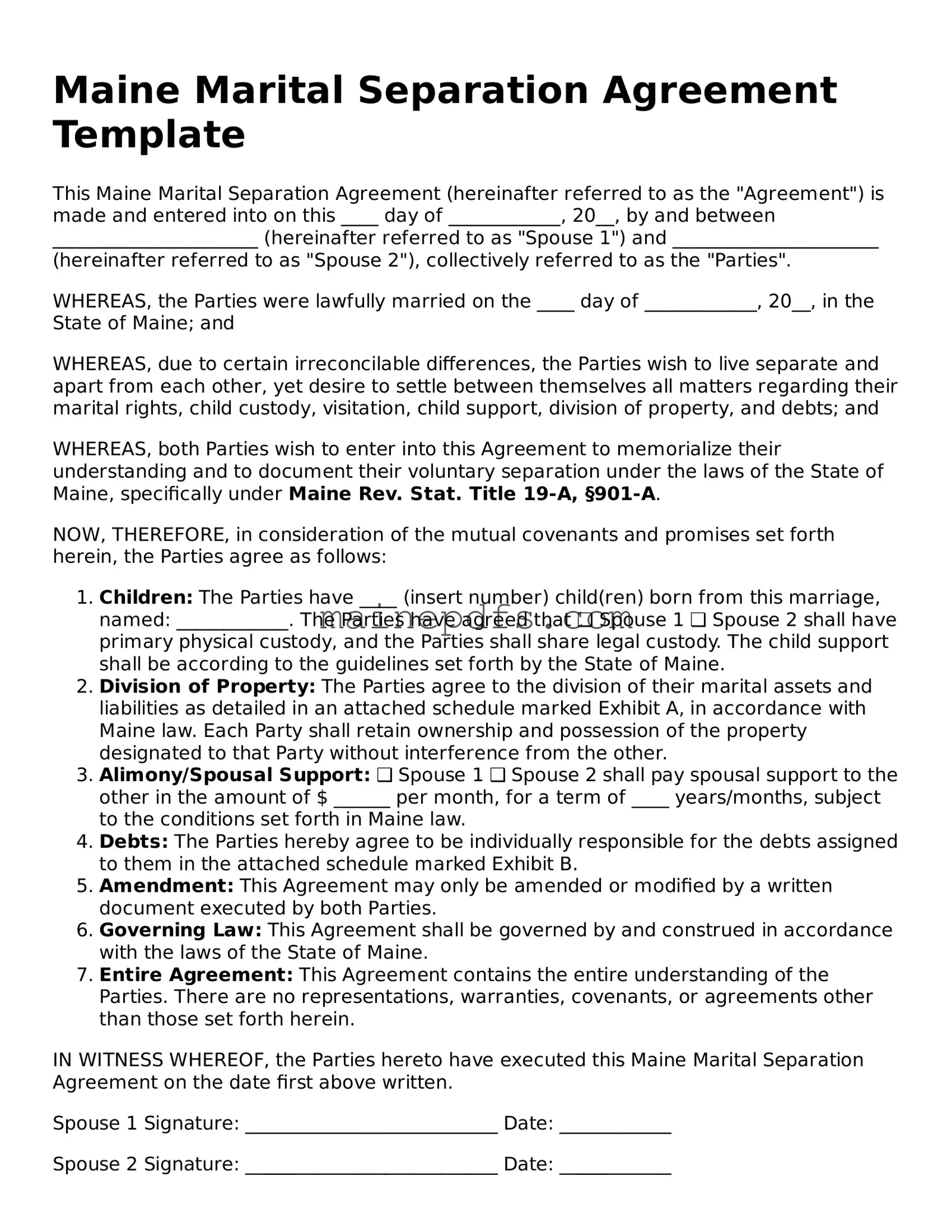Maine Marital Separation Agreement Template
This Maine Marital Separation Agreement (hereinafter referred to as the "Agreement") is made and entered into on this ____ day of ____________, 20__, by and between ______________________ (hereinafter referred to as "Spouse 1") and ______________________ (hereinafter referred to as "Spouse 2"), collectively referred to as the "Parties".
WHEREAS, the Parties were lawfully married on the ____ day of ____________, 20__, in the State of Maine; and
WHEREAS, due to certain irreconcilable differences, the Parties wish to live separate and apart from each other, yet desire to settle between themselves all matters regarding their marital rights, child custody, visitation, child support, division of property, and debts; and
WHEREAS, both Parties wish to enter into this Agreement to memorialize their understanding and to document their voluntary separation under the laws of the State of Maine, specifically under Maine Rev. Stat. Title 19-A, §901-A.
NOW, THEREFORE, in consideration of the mutual covenants and promises set forth herein, the Parties agree as follows:
- Children: The Parties have ____ (insert number) child(ren) born from this marriage, named: ____________. The Parties have agreed that ❑ Spouse 1 ❑ Spouse 2 shall have primary physical custody, and the Parties shall share legal custody. The child support shall be according to the guidelines set forth by the State of Maine.
- Division of Property: The Parties agree to the division of their marital assets and liabilities as detailed in an attached schedule marked Exhibit A, in accordance with Maine law. Each Party shall retain ownership and possession of the property designated to that Party without interference from the other.
- Alimony/Spousal Support: ❑ Spouse 1 ❑ Spouse 2 shall pay spousal support to the other in the amount of $ ______ per month, for a term of ____ years/months, subject to the conditions set forth in Maine law.
- Debts: The Parties hereby agree to be individually responsible for the debts assigned to them in the attached schedule marked Exhibit B.
- Amendment: This Agreement may only be amended or modified by a written document executed by both Parties.
- Governing Law: This Agreement shall be governed by and construed in accordance with the laws of the State of Maine.
- Entire Agreement: This Agreement contains the entire understanding of the Parties. There are no representations, warranties, covenants, or agreements other than those set forth herein.
IN WITNESS WHEREOF, the Parties hereto have executed this Maine Marital Separation Agreement on the date first above written.
Spouse 1 Signature: ___________________________ Date: ____________
Spouse 2 Signature: ___________________________ Date: ____________
Witness Signature: ___________________________ Date: ____________

